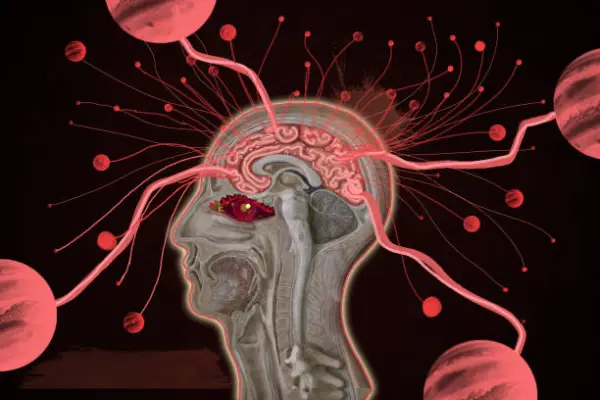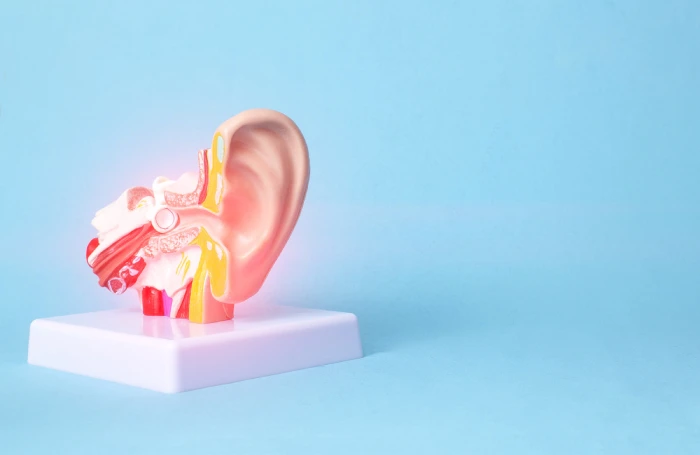Too Many Requests from Your Network
Please complete verification to access this content.
This article aims to provide evidence-based strategies for individuals who struggle with falling back asleep after waking up at 3am. By understanding the sleep-wake cycle and identifying potential causes of this phenomenon, individuals can implement effective bedtime routines and relaxation techniques to promote better sleep continuity.
Furthermore, seeking professional help may be necessary for those experiencing chronic sleep issues. The information presented herein offers informative and authoritative guidance tailored to an audience seeking a sense of belonging within the realm of managing their sleep disturbances.
Understanding the Sleep-Wake Cycle
Understanding the sleep-wake cycle involves examining the various factors that influence the timing and duration of sleep. One key factor in regulating this cycle is the circadian rhythm, which is an internal biological clock that helps regulate our sleep patterns. The circadian rhythm is influenced by external cues such as light and darkness, as well as internal factors like hormone levels and body temperature. It helps to synchronize our sleep-wake patterns with the natural day-night cycle.
Sleep deprivation can disrupt the normal functioning of the circadian rhythm, leading to difficulties in falling asleep and staying asleep. Chronic sleep deprivation can have significant negative effects on cognitive function, mood, and overall health. It is important to prioritize a consistent sleep schedule and create a conducive sleep environment to support proper regulation of the circadian rhythm.
Identifying Potential Causes of Waking up at 3am
One factor that may contribute to the occurrence of awakening during the early morning hours is the identification of potential causes. Understanding possible causes can help individuals manage anxiety and improve their ability to fall back asleep.
Some common causes include stress, anxiety, and hormonal changes. Stressful events or unresolved issues can lead to a racing mind and increased cortisol levels, making it difficult to sleep through the night. Anxiety disorders, such as generalized anxiety disorder or panic disorder, can also disrupt sleep patterns and cause awakenings. Hormonal changes, particularly in women during menopause or pregnancy, may result in hot flashes or discomfort that interrupt sleep.
Establishing a Bedtime Routine for Better Sleep
Establishing a consistent bedtime routine has been shown to improve the quality of sleep by providing individuals with a structured and calming pre-sleep ritual. Creating a sleep-friendly environment is an essential aspect of this routine. This includes ensuring the bedroom is dark, quiet, and at a comfortable temperature. Removing electronic devices from the sleeping area can also contribute to better sleep quality.
Additionally, incorporating natural remedies for better sleep can be beneficial. These may include drinking herbal teas like chamomile or lavender, which have relaxing properties that promote sleepiness. Engaging in relaxation techniques such as deep breathing exercises or meditation before bed can also help calm the mind and prepare it for restful sleep.
Overall, establishing a consistent bedtime routine that incorporates creating a sleep-friendly environment and utilizing natural remedies can greatly improve one’s ability to fall asleep and stay asleep throughout the night.
Implementing Relaxation Techniques to Ease Back to Sleep
Implementing relaxation techniques, such as deep breathing exercises or meditation, can aid in the process of returning to a state of restfulness during interrupted sleep.
Progressive muscle relaxation is one technique that involves tensing and then relaxing each muscle group in the body to promote relaxation.
Deep breathing exercises involve taking slow, deep breaths and focusing on the sensation of breath entering and leaving the body.
These techniques are thought to activate the body’s relaxation response, which counteracts stress and promotes a sense of calmness.
Research studies have shown that practicing progressive muscle relaxation and deep breathing exercises before bed can improve sleep quality and help individuals fall back asleep more easily after waking up during the night.
Seeking Professional Help for Chronic Sleep Issues
Seeking the assistance of a healthcare professional can be beneficial for individuals experiencing chronic sleep issues as they can provide specialized assessments and treatments to address underlying causes and improve overall sleep quality.
Healthcare professionals, such as sleep specialists or psychologists, may recommend cognitive behavioral therapy for insomnia (CBT-I) as a non-pharmacological approach. CBT-I focuses on changing negative thoughts and behaviors that contribute to sleep disturbances, promoting relaxation techniques, and establishing healthy sleep habits.
Medication options may also be considered for individuals with severe or persistent sleep disorders. These medications can help regulate sleep patterns and promote restful sleep. However, it is important to consult a healthcare professional before starting any medication regimen to ensure safety and effectiveness.
In summary, seeking professional help offers tailored interventions like CBT-I and medication options for addressing chronic sleep issues effectively.
- Cognitive behavioral therapy for insomnia (CBT-I)
- Non-pharmacological interventions
- Individualized treatment plans
Frequently Asked Questions
How Long Does the Average Person Stay Awake After Waking up at 3am?
After waking up at 3am, the average person stays awake for a variable duration depending on individual factors such as sleep quality and external influences. Numerous studies suggest that it can range from a few minutes to several hours.
Can Certain Foods or Drinks Consumed Before Bed Affect My Ability to Fall Back Asleep?
Consuming certain foods and drinks before bed can interfere with the ability to fall back asleep. For example, beverages containing caffeine can negatively impact sleep quality and make it difficult to return to sleep after waking up at 3am.
Are There Any Natural Supplements or Remedies That Can Help Me Fall Back Asleep?
Natural sleep aids and alternative remedies can be sought to assist individuals in falling back asleep after waking up at 3am. These options may include herbal supplements, relaxation techniques, and cognitive behavioral therapy.
Should I Avoid Looking at My Phone or Other Electronic Devices When Trying to Fall Back Asleep?
Avoiding screen time and electronic devices is recommended for individuals seeking to fall back asleep. Following sleep hygiene tips, such as creating a conducive sleep environment, maintaining a regular sleep schedule, and engaging in relaxation techniques, can also promote better sleep quality.
Is It Normal to Experience Anxiety or Racing Thoughts When Waking up at 3am?
The experience of anxiety or racing thoughts upon waking at 3am is a common occurrence. Effective anxiety management and relaxation techniques, such as deep breathing exercises, meditation, and progressive muscle relaxation, can help alleviate these symptoms.








